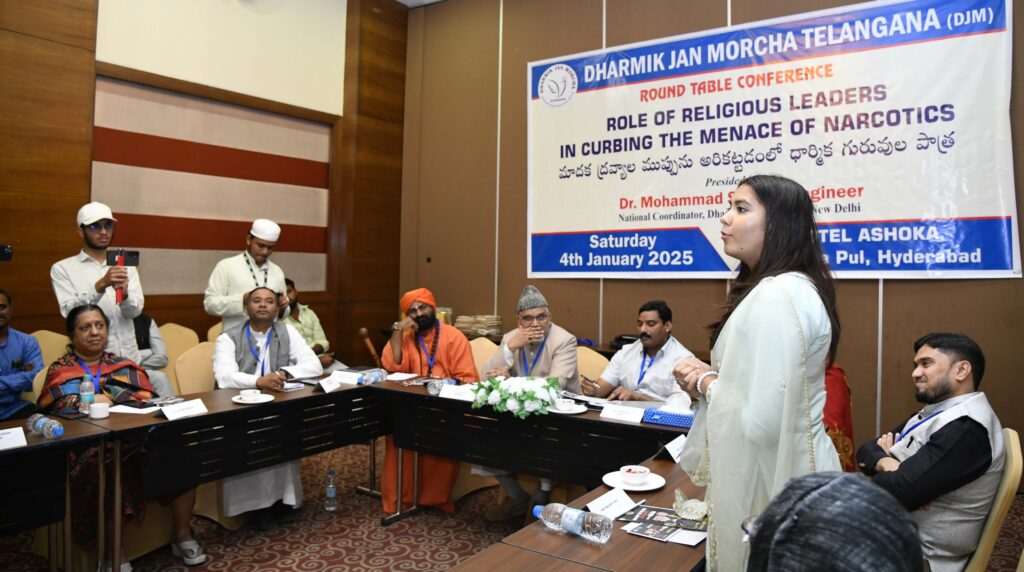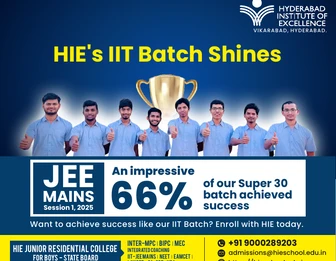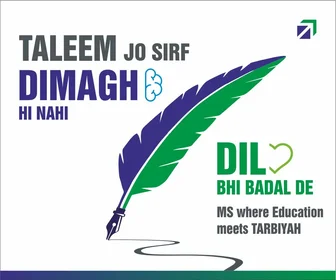
Hyderabad: In a rare display of interfaith unity, religious leaders from diverse faiths gathered here on Saturday to address the growing drug menace threatening the youth of the state. The event, organized by the Dharmik Jan Morcha under the auspices of Jamaat-e-Islami Hind, Telangana, aimed at devising collective strategies to curb this societal challenge.
The conference emphasized that all religions unanimously condemn intoxication, making it a common ground to launch a united campaign against drug abuse. Participants highlighted the need for collaborative efforts to protect society, especially its younger generation, from the clutches of addiction.
“Every religion disapproves of intoxication. Let us unite on this principle to fight drug abuse together,” urged one of the speakers.
Factors and family role

The rise of nuclear families with both parents working and children often left unsupervised was identified as a significant factor contributing to the increasing prevalence of drug and alcohol use among youth. Kushi Jain, a young student, presented a poignant account of how loneliness and lack of parental attention drive children towards drugs.
“Many parents are too busy to spend time with their children, much less listen to their problems. This leaves children feeling isolated, and they often seek solace in drugs to cope with their unhappiness,” Kushi explained.
She further elaborated on the role of peer pressure, which convinces many young people that drinking or using drugs is a prerequisite for social acceptance.
Challenges in addressing the issue
Another major issue discussed was the reluctance of families to address drug addiction openly. Often, parents are unaware of their children’s struggles, and when they do discover it, they tend to prioritize family honor over seeking medical help. This approach prevents timely intervention and exacerbates the problem.
Fakhruddin Ali Ahmed, Secretary of JIH, emphasized the normalization of alcoholism as a primary cause of drug abuse. “Many families believe that drinking occasionally is harmless,” he said, pointing out how films and advertisements glorify alcohol consumption, portraying it as a coping mechanism or a symbol of masculinity. “Are we not unconsciously conditioning young minds?” he questioned.
Dr. Ara Mohsina, Director of the Women’s Wing at JIH, called on parents to reassess their approach to raising children. She noted that while infants are often pampered, older children are frequently left to fend for themselves. “Addiction is not a crime. Families should support those going through difficult times rather than abandoning them,” she urged, stressing the importance of empathy and understanding in addressing addiction.
Calls for policy change
Lakshmi Narsimham of the Chilkur Balaji Temple advocated for stricter measures, including the closure of tobacco and alcohol industries and rigorous action against drug peddlers. Similarly, Dr. Saleem Engineer, National Coordinator of DJM, highlighted the moral and economic challenges associated with addiction. He recalled Mahatma Gandhi’s vision of a society free from alcohol and lamented the government’s reliance on revenue from these industries. “If we clearly explain the gravity of the situation, even governments might reconsider their policies,” he suggested.
Dr. Saleem also emphasized the DJM’s long-standing commitment to interfaith collaboration, noting its efforts since 2001 to address various social issues in 16 states.
Law Enforcement agencies
Subbarami Reddy, DSP of the Narcotics Department, shed light on the psychology behind drug use. He explained how addiction often begins with curiosity or the desire to fit in and escalates into dependency. “It starts with pleasure but ends in pain,” he remarked.
Reddy also outlined the efforts of the Telangana Anti-Narcotics Bureau, including the establishment of Prahari Clubs in schools and colleges to conduct anti-drug workshops and seminars aimed at educating young people about the dangers of drug abuse.
Pastor Kondah Amthaih, Anjah Swamiji, Mahant Rajeshdas Vihnu, Dr. Lokdeep Sharma and Sandeep Thakur also spoke. Participants agreed that the conference should not remain an academic exercise but lead to tangible outcomes. Concrete steps, such as increased public awareness campaigns, parental guidance initiatives, and stricter enforcement of drug laws, were proposed to combat the crisis effectively.
By fostering unity across religious and professional lines, the conference underscored the need for a collective, community-driven approach to protect Telangana’s youth from the scourge of addiction.


